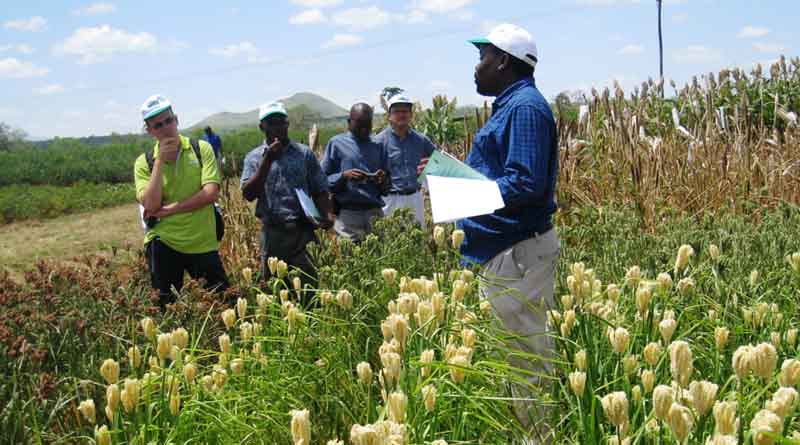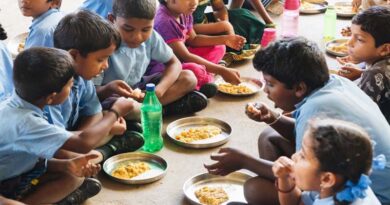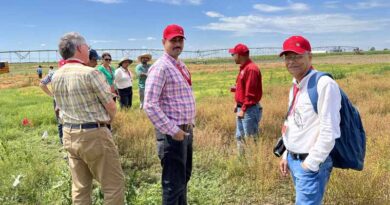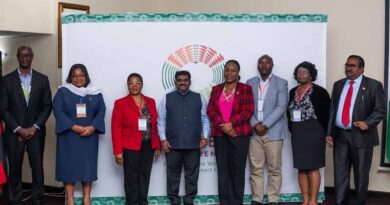Finger Millet Genome Breakthrough to Help Safeguard Food Security
27 June 2023, Africa: ICRISAT, in collaboration with a team of researchers led by the University of Georgia, USA, has published a pioneering study on the finger millet genome offering new insights for breeders and hope for millions in the drylands.
The study opens exciting possibilities for developing new finger millet varieties through targeted breeding techniques to enhance nutritional value, yield, and resilience to various challenges.
The breakthrough provides a detailed understanding of finger millet’s genetic structure, specifically at the chromosome level (a structure found within the cells of living organisms that carries genetic information).
The findings were recently published in the scientific journal Nature Communications on June 21, 2023.
Finger millet, a crucial crop for ensuring food security, is cultivated extensively in Eastern Africa, India, and Nepal.
In recent years, there has been a renewed interest in finger millet due to its remarkable ability to withstand challenging climate conditions and the recognition of its highly nutritious grain.
Although traditionally considered a low-income, subsistence crop, finger millet is gaining prominence for its resilience and nutritional value.
“We are excited about the potential of this high-quality genome assembly as well as other genetic and genomic resources that we are developing to unravel the genetics of traits that are key to the yield and nutritional improvement of finger millet.
“A continuing strong collaboration between geneticists and breeders is essential to ensure that genetic advances are translated into breeding advances. We are dedicated to making this happen,” said Dr Katrien M Devos, the lead author of the study at the University of Georgia, USA.
For a long time, finger millet has been neglected in Eastern African agricultural systems due to global political influences and government policies favoring other cereals.
It is mostly grown as a backup crop rather than staple food, resulting in low yields and limited genetic improvement.
Challenges in breeding finger millet, such as its inbreeding nature and difficulties in crossbreeding, have further hindered progress.
Although crossbreeding has been practiced since the 1950s in India and, more recently, in eastern Africa, there has been a lack of genetic and trait information necessary for effective breeding.
Speaking on the breakthrough, Director General of ICRISAT Dr Jacqueline Hughes, said decoding the genetic structure of finger millet holds the key to unlocking better breeding outcomes, paving the way for enhanced food security in the drylands.
“By understanding finger millet’s genetic makeup, we can develop improved varieties that are more climate-resilient, productive, and nutritious, ultimately empowering communities in dryland regions to overcome food security challenges,” said Dr Hughes.
Deputy Director General of ICRISAT Dr Arvind Kumar, applauded the collaboration and said the groundbreaking study exemplified the power of scientific inquiry, effectively unveiling a world of possibilities to improve breeding for enhanced dryland food security.
“I thank the University of Georgia and ICRISAT scientists for this work that holds promise in boosting the nutritional value, amplifying the yields, and fortifying the resilience of this remarkable crop for the benefit of dryland communities,” said Dr Kumar.
In technical terms, the new publication reports the generation of a high-quality genome assembly of finger millet, the population structure of a finger millet germplasm collection from across the finger millet growing regions of Africa and South Asia, and the application of the sequence information to identify a candidate gene for a quantitative trait locus (QTL) for anthocyanin production in the stigma and anthers.
“These advancements will enable the identification of key genetic elements associated with target traits, ultimately leading to speedier development of improved finger millet varieties that are resilient, high-yielding, and nutritionally superior,” said Dr Sean Mayes, Global Research Program Director, Accelerated Crop Improvement, ICRISAT
The study was funded by BioInnovate Africa, the Bill and Melinda Gates Foundation, and the National Science Foundation – Basic Research to Enable Agricultural Development Program.
The finger millet genome sequencing consortium was initiated by ICRISAT scientist Dr Damaris A Odeny, the current publication’s last author (principal investigator). ICRISAT scientist Dr Henry F Ojulong was part of the team.
Also Read: Small dairy farmers: The backbone of Indian dairy
(For Latest Agriculture News & Updates, follow Krishak Jagat on Google News)















